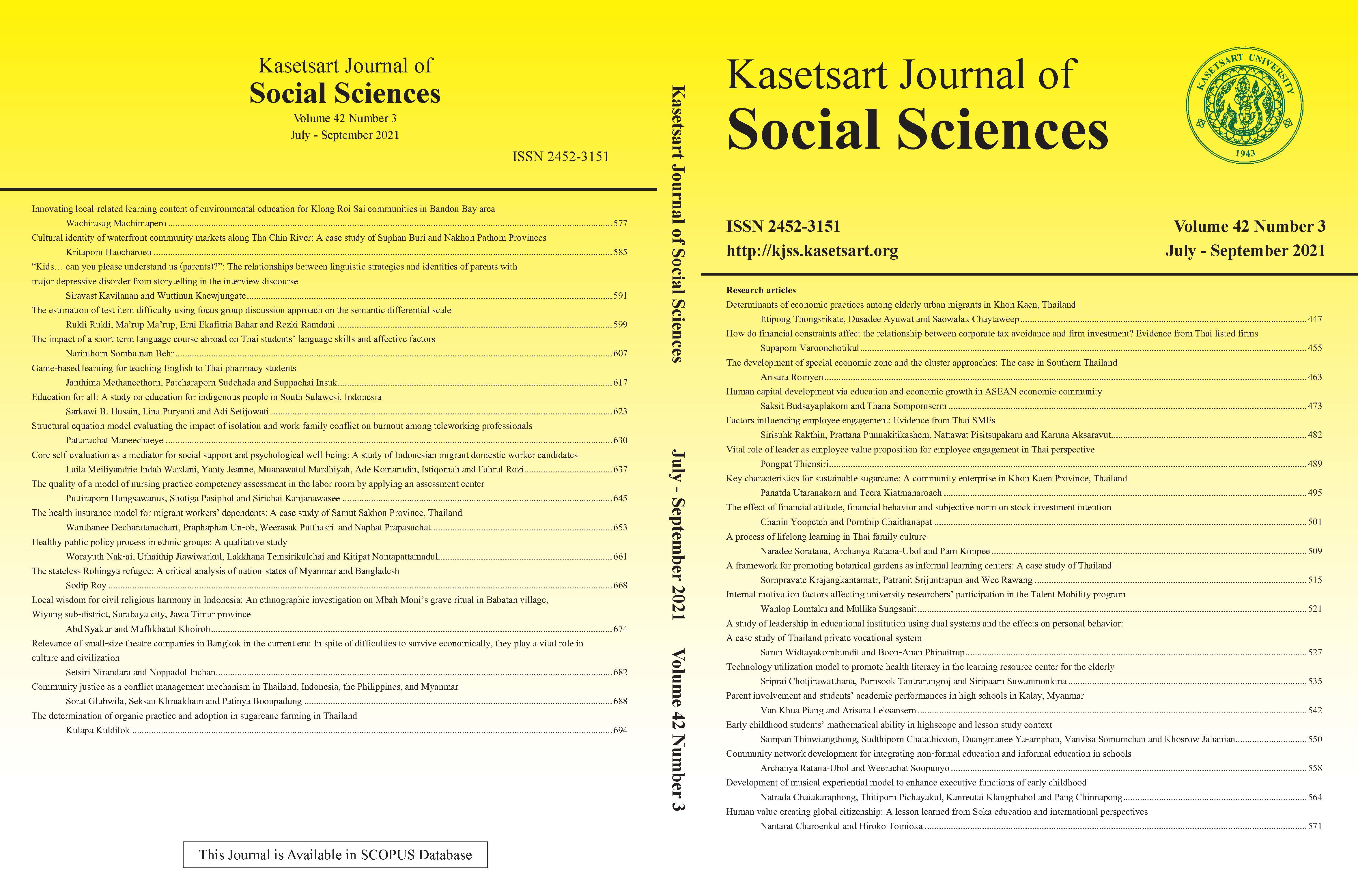Development of musical experiential model to enhance executive functions of early childhood
Keywords:
early childhood, executive functions, mixed method, musical experiential modelAbstract
The development of the cognitive skills of young children using music training has become the focus of a growing number of research studies in recent years. This study investigated the components, development, and effects of the Musical Experiential Model to enhance the executive functions of 4-to-5-year-olds in their early childhood in Nonthaburi area 1, Thailand, using a three-phase mixed methods experimental design. Phases 1 and 2 found that the Musical Experiential Model development consisted of 5 components; (1) the 6 principles, (2) the objectives of promoting 4 aspects of executive functions, including working memory, inhibitory control, cognitive flexibility, and planning and organizing, (3) the contents which were integrated music content and learning content in the Early Childhood Curriculum, B.E. 2560 (2017), (4) the GPAC music experience process, as follows: music goal-setting (G), music action planning (P), action in music (A), music creating (C), and (5) 3 phases of assessment and evaluation, which were satisfactory at a high level. Phase 3 involved an educational experiment using the Musical Experiential Model with a sample of 30 young students. The pairing sample t-test and repairing measures with the analysis of covariance revealed that there was a significant difference in performance improvement (p < .05). The findings from this study benefit music experience interventions, including important issues regarding intervention duration, experimental design, music experience process, contents of music experience, executive function testing, measuring tools and music teacher attributes.
Downloads
Published
How to Cite
Issue
Section
License

This work is licensed under a Creative Commons Attribution-NonCommercial-NoDerivatives 4.0 International License.
This is an open access article under the CC BY-NC-ND license http://creativecommons.org/licenses/by-nc-nd/4.0/










